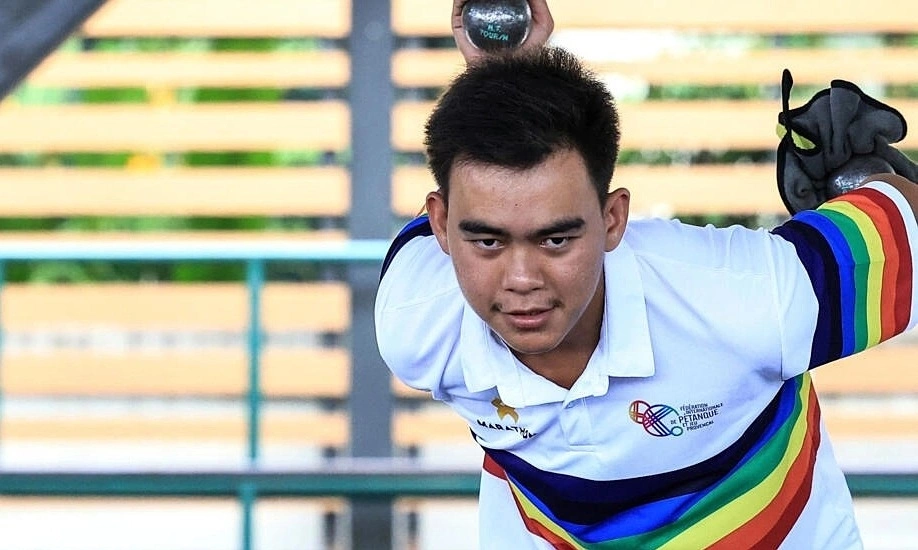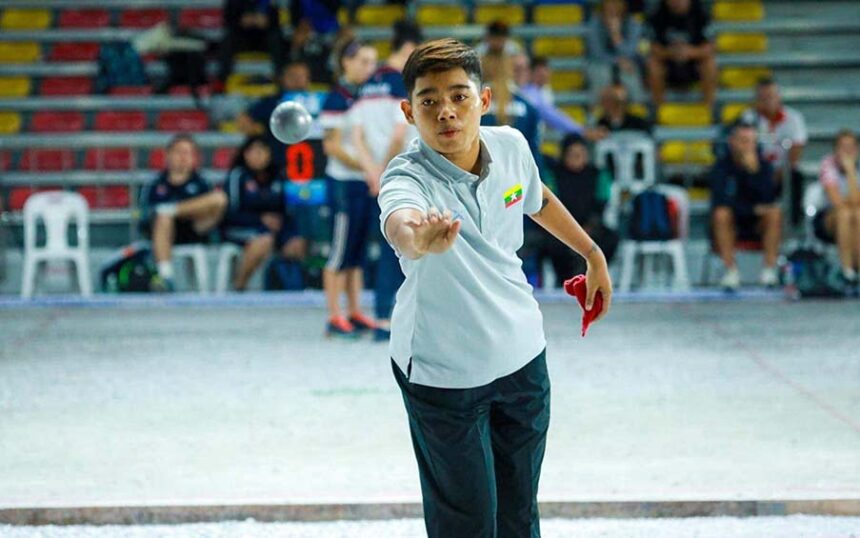BANGKOK — The World Pétanque and Bowls Federation (WPBF) has pulled its approval for Pétanque at the upcoming 33rd Southeast Asian Games in Thailand (December 9 to 20), shaking the region’s sports world.
The decision, confirmed in a strongly worded letter dated September 20, outlines major allegations involving corruption, misuse of funds, rigged internal elections, and claims of sexual misconduct by a top official from Thailand’s national pétanque federation.
Thailand, long a leading force in pétanque, now faces the risk of having one of its favourite sports left out of the Games, forcing hundreds of athletes to the sidelines and putting a dent in the country’s reputation as SEA Games host.
WPBF president Claude Azéma wrote the letter, which Thai news outlets published widely. He said the Pétanque Federation of Thailand (PFT) allowed a former president, who is banned for life, to influence decisions like player choices and money management.
Azéma claimed this behaviour damaged Thai pétanque’s name and risked players’ careers. He described the national sports leaders as unfit to run future events. The WPBF has now removed Thailand’s federation from its organization and issued a two-year worldwide ban against Thai participation. Any overseas teams taking part in SEA Games pétanque events could face similar penalties, which means the competition may not go ahead at all.

Central Pétanque Committee
Thailand’s Sports Authority (SAT), led by governor Kongsak Yodmanee, responded quickly on September 23, promising to straighten things out. SAT officials said the banned leader has no part in SEA Games planning and insisted all public funds are accounted for. Kongsak said the facts would be clarified with the WPBF and that Thai athletes are being protected.
The National Olympic Committee of Thailand (NOCT) also set up a Central Pétanque Committee approved by the WPBF to supervise the sport. However, reports indicate resistance within the SAT to fully follow the required changes, which means past issues may persist. WPBF leaders were unavailable for further comment, but the scandal has led some neighbouring Southeast Asian countries to rethink plans to join the event.
The crisis strikes a blow to pétanque, a sport known for accuracy, teamwork, and its inclusive spirit that has lifted it from French village traditions to world competitions. Pétanque, sometimes called “petanque” outside France, is a simple game with ancient roots. Its name comes from “pès tancats”, meaning feet together, since players must remain with both feet in a circle while throwing metal balls.
This sets it apart from older boules games, which allowed movement before throwing. Pétanque was created in La Ciotat (near Marseille) in 1907 to accommodate a player who could not move quickly. The first tournament took place in 1910, organized by local café owners. Over time, pétanque overtook other versions of boules and became a staple of French leisure life.
The game involves teams of up to three, a small wooden target ball called the cochonnet, and metal boules. Players throw their boules toward the cochonnet from a set circle, aiming to get nearest, or to knock the opponent’s balls away.

Pétanque’s popularity worldwide
Teams score points by placing their boules closer to the cochonnet than their rivals. Played on rough ground, matches often run until one team reaches 13 points, with games lasting around an hour. The only essentials are boules, a jack, and a circle marked on the ground, making pétanque available to nearly anyone.
Pétanque’s popularity worldwide comes from its simplicity and the social enjoyment it offers. The sport’s governing bodies, FIPJP and WPBF, manage more than 600,000 registered players in over 50 countries. While France remains the heart of pétanque, the game is now strong in places with links to France, especially Southeast Asia, Madagascar, and parts of Africa.
It features in the World Games, Asian Games, and the Pacific Games, where the strategy and skill draw crowds. Pétanque has supporters in the US, Canada, Australia, and Japan, where local clubs are growing. The sport attracts a mix of ages and backgrounds, including families and people with disabilities.
In Thailand, pétanque has become more than just a pastime. The sport took off in 1975 after a French-educated Thai brought it home. Princess Srinagarindra, the late mother of King Bhumibol Adulyadej and grandmother to the current King Maha Vajiralongkorn, discovered pétanque while living in Switzerland and later promoted it strongly in Thailand.
She saw its value as a healthy, low-cost way to bring people together, introducing the sport in schools, the police, the military, and the government. Her support boosted its profile quickly. Today, more than 10 million Thais play, many starting at school age, making Thailand one of the most active pétanque nations.

Thailand Holds Top World Ranking
The Thai military’s role has been key, especially in promoting female talent. Well-known figures like Navy officer Thongsri Thanakorn—multiple global title holder—show how the armed forces back the top players. At the 2023 World Championships in Benin, Thailand led the medal table, even finishing ahead of France.
Up-and-coming stars, like Ratchata Uaboonruang from Sukhothai, continue Thailand’s run of strong showings, and the country regularly dominates at the SEA Games. For 2025, Thailand holds the top world ranking. As one coach said, pétanque in Thailand is as competitive as muay Thai, blending careful tactics with a strong sense of community.
The effect of the scandal feels especially sharp given Thailand’s recent sporting success. The SEA Games should have showcased Thailand’s event hosting skills after the 2019 Games. Dropping pétanque risks millions in lost opportunities and could leave athletes stranded after months of training.
Although officials had worked behind the scenes to keep pétanque part of the Games, WPBF’s tough stance has unravelled those efforts. Some see the crisis as exposing ongoing problems in Thai sports management, echoing past scandals in FIFA and the Olympic movement. As a Bangkok pétanque club organizer said, the sport once offered a sure route to SEA Games triumph but now looks like a lesson in missed chances.
With little time left before December, Thailand needs quick answers. The outcome is unclear. If negotiations with the WPBF fall short, pétanque could be dropped, leaving a gap in a sport that brings people together. For now, as training continues on pitches across the country, Thai players remain focused, hoping for a last-minute solution and a chance to compete on the regional stage.














